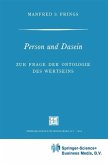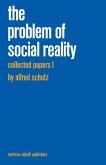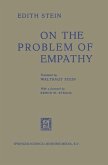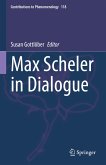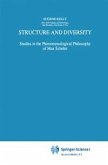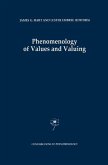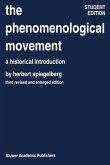he radical viewpoint of phenomenology is presented by T 3 Edmund Husser! in his Ideas. This viewpoint seems quite simple at first, but becomes exceedingly complex and involves intricate distinctions when attempts are made to apply it to actual problems. Therefore, it may be well to attempt a short statement of this position in order to note the general problems with which it is dealing as well as the method of solution which it proposes. I shall emphasize the elements of phenomenology which seem most relevant to E. Stein's work. Husser! deals with two traditional philosophical questions, and in answering them, develops the method of phenomenological reduction which he maintains is the basis of all science. These questions are, "What is it that can be known without doubt?" and "How is this knowledge possible in the most general sense?" In the tradition of idealism he takes consciousness as the area to be investigated. He posits nothing about the natural world. He puts it in "brackets," as a portion of an algebraic formula is put in brackets, and makes no use of the material within these brackets. This does not mean that the "real" wor!d does not exist, he says emphatically; it only means that this existence is a presupposition must be suspended to achieve pure description.
Dieser Download kann aus rechtlichen Gründen nur mit Rechnungsadresse in A, B, BG, CY, CZ, D, DK, EW, E, FIN, F, GR, HR, H, IRL, I, LT, L, LR, M, NL, PL, P, R, S, SLO, SK ausgeliefert werden.



